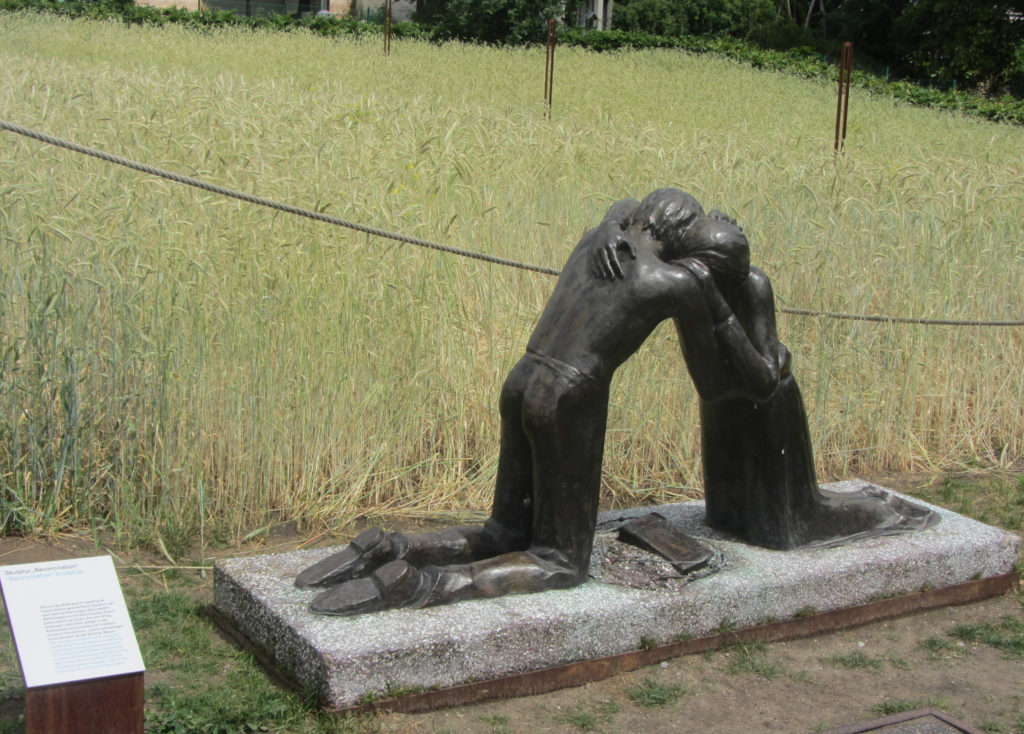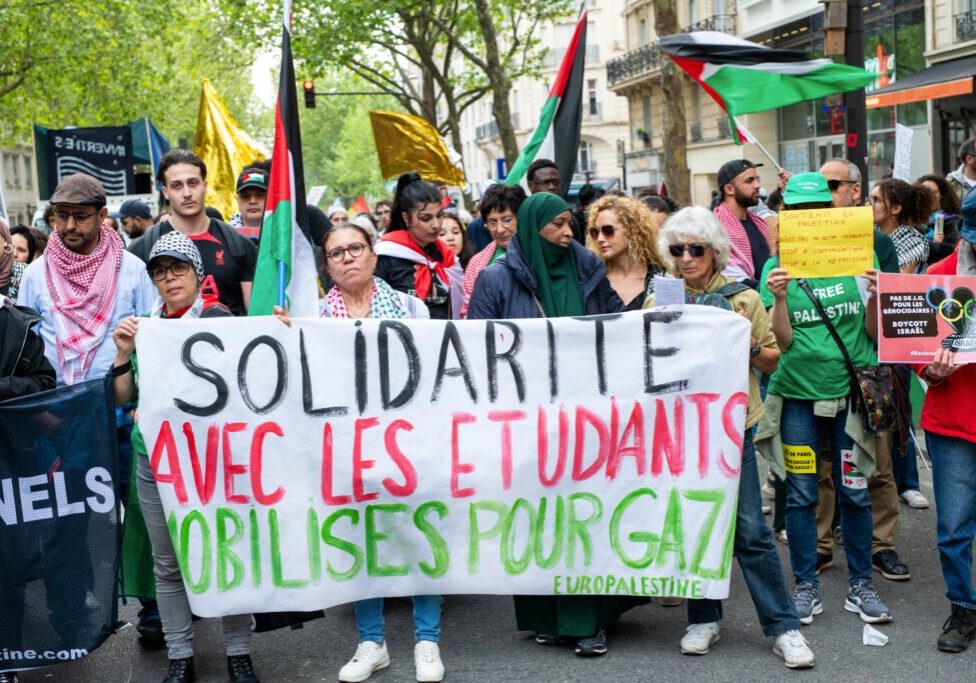Australia/Israel Review
The Last Word: Of Walls and Words
Jul 2, 2012 | Jeremy Jones

Jeremy Jones
From the tastefully placed pavement plaques to the grand museums, from the confronting and disorientating Holocaust Memorial to the larger than life-sized photographs of citizens fleeing Communist dictatorship, Berlin is a city steeped in memory.
It is also a lively, vibrant locus of arts and anarchic extravagance. In a way, the east of the city, which I visited this June, feels as if it is consciously contradictory and self-mocking – acknowledging the cruelty which has emanated from, and engulfed, the metropolis.
The irony of totalitarian, self-selected rulers governing under the aegis of the German “Democratic” Republic is rammed home when one visits the Museum of the DDR or any of the installations marking the infamous Berlin Wall.
Not just tens, not just hundreds, not just thousands, but hundreds of thousands of people “defected” from Communism to West Germany, chasing the democracy they were denied in the “Democratic” Republic.
The Berlin Wall was constructed to prevent more Germans having a choice of political experiences, after so many Berliners became refugees after travelling a matter of metres from the homes they had fled.
It was, as I have noted, ironic that the restrictive regime dubbed itself democratic, but it is bizarre that seemingly educated or intelligent people make a connection between the Berlin Wall and the security barrier – in some places a wall, but mostly a fence – which Israel constructed in recent years.
While the Communists’ aim was to restrict, the Israeli aim has been to protect.
The Berlin Wall was built to trap people who wanted to leave, the Israeli barrier to stop intending murderers from reaching their targets.
While the Berlin Wall increased tensions and stood in the way of East-West rapprochement, the Israeli barrier had the short-term effect of restoring calm and breaking the chain of terrorist activity, leading to the possibility of negotiations and prospects for mutually beneficial peace.
“Democracies” are not always democratic, “walls” are not for a single purpose and it is becoming more and more apparent that “refugees” are not always refugees.
In my student days, I attended the Sydney media conference of a visiting representative of the United Nations Relief and Works Agency (UNRWA). Given the passions and polemics which so often substitute for sensible discussion on the Arab-Israeli conflict, the presentation was refreshingly factual, non-judgemental and compassionate.
The problem arose when an innocent question was asked by a journalist regarding numbers of refugees – as he sought to understand how decades after a problem had arisen it was growing rather than receding.
Responding angrily and accusingly, the UNRWA representative said that he was just doing his job as a civil servant and he shouldn’t be blamed for the fact that the international community was jeopardising chances for peace by its use of “those poor Palestinians” as pawns.
I don’t doubt that he was genuine, but he could have given a little more explanation, as Daniel Meyerowitz-Katz does in his article “UNRWA and the Palestinian ‘Right of Return'” as to why and how Palestinian refugees are uniquely defined, and about the immense bureaucracy tied into this deceit.
As Ben-Dror Yemini pointed out in his (Hebrew language) Ma’ariv column (June 22), UNRWA employs more than 29,000 people, of whom only 200 are not Palestinian. This is in contrast to the 7,685 people the UN employs to deal with 34 million non-Palestinian refugees.
When one considers the fact that a huge majority of people serviced by UNWRA, and an even larger majority of the people that UNRWA counts as refugees, would not be considered eligible for services if consistent standards were applied, the disparity becomes even more scandalous.
Einat Wilf, one of the most creative, intelligent and compassionate parliamentarians in Israel (or in any other country) argues that an end to UNRWA mythology is in the interests of the international community, the Palestinians and the prospects for peaceful Israeli-Arab coexistence.
Australia, as a financial supporter of UNRWA, could not only join, but lead, this effort.
Tags: Europe






